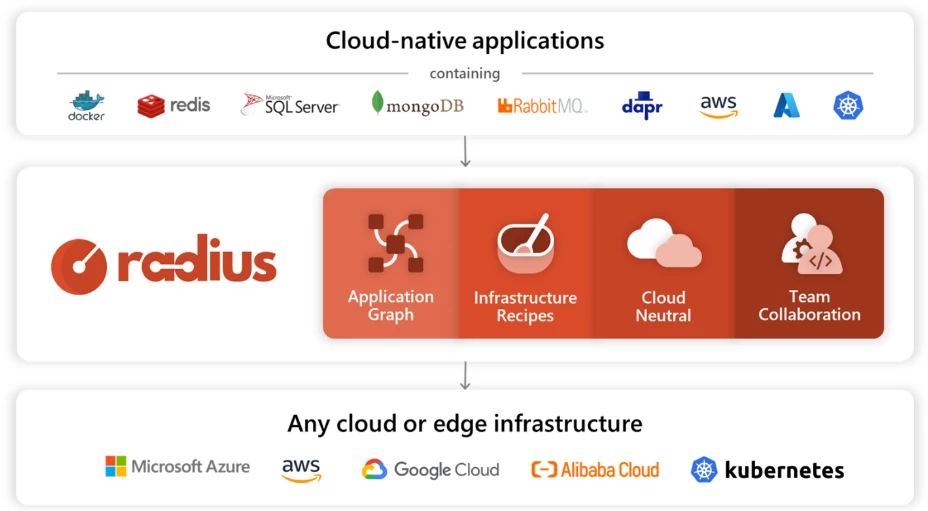Microsoft has recently announced Radius, a cloud-native application platform designed to facilitate collaboration between developers and platform engineers who assist them in delivering and managing cloud-native applications. This platform ensures that these applications adhere to corporate standards for cost-efficiency, operational efficiency, and security as the default approach.
Radius is an open-source project from the company's Azure Incubation team that supports deploying applications across private cloud, Microsoft Azure, and Amazon Web Services. This team previously also launched other open-source projects, such as Dapr, KEDA, and Copacetic, available at github.com via the Cloud Native Compute Foundation (CNCF).
Radius adapts to the specific needs of developers by supporting established technologies such as Kubernetes, pre-existing infrastructure tools like Terraform and Bicep, and integration with current continuous integration and continuous delivery (CI/CD) systems such as GitHub Actions.
Mark Russinovich, chief technology officer of Microsoft Azure, explains:
Radius enables developers to understand their applications, and it knows your application is more than just Kubernetes. Radius helps developers see all the components that comprise their application, and when they add new components, Radius automatically connects those components to their application by taking care of permissions, connection strings, and more.

Overview of Radius (Source: Microsoft blog)
Radius additionally guarantees that the cloud infrastructure supporting applications aligns with cost, operational, and security prerequisites. These prerequisites are documented in recipes, formulated by IT operators, platform engineers, and/or security engineers assisting cloud-native developers. Furthermore, Radius associates an application with its underlying infrastructure, enabling it to provide an application diagram illustrating the interconnections between the application and infrastructure – allowing users to view and intuitively understand what makes up an application.
A respondent on a Hacker News thread on Radius posted a comment:
I suppose this sounds useful if you've got a really complicated cloud deployment, but it's sad to me that people would need software to understand their own application deployments.
At the same time, in a LinkedIn post by Russinovich announcing the launch of Radius, Alex Neihaus, an Azure and AWS Cloud Infrastructure Architect, commented:
I admire the effort. But it reads as another attempt to unify devs and infrastructure, this time in a deployment model (cloud, private) agnostic way.
Dream on.
In addition, Patt Gunn, a systems programmer, commented on the name of the application platform:
This is not a good name for a platform; there's an internet protocol (for authentication) called radius. You're going to confuse people and make it hard for people looking for the other one to do good internet searches.
Lastly, more details on Radius are available on the documentation pages.